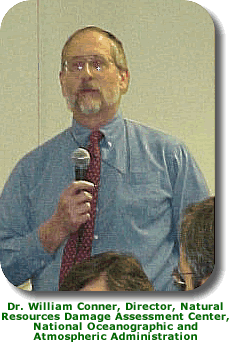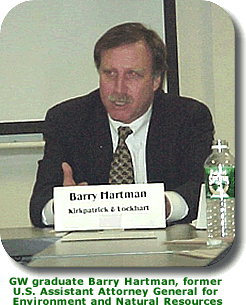On February 5, 2004, E&EM participated in a seminar at the Environmental Law Institute on “Expediting Natural Resources Restoration: Conducting Cooperative Natural Resource Damage Assessment.” The seminar was focused on a new federal government emphasis on the establishment of cooperative working relationships between government agencies and industry in order to expedite restoration of injured resources and resolve liability issues, while cutting process costs and reducing the possibility of litigation. While federal and state agencies work to clean up sites affected by hazardous substance releases and oil spills, federal, state and Indian tribal co-trustee agencies conduct a parallel but different effort called natural resource damage assessment (NRDA) to assess injuries to natural resources and their services. Damage assessment ensures that, in addition to the cleanup, the public’s natural resources are restored after a hazardous substance release or oil spill.
In the past, agencies have found that comparable sites contaminated by hazardous substances take drastically different paths and timelines to restore natural resource injuries, and that restoration efforts are more efficient at some sites than others. The seminar addressed ways in which affected parties can move more quickly toward resolving liability and restoring the public’s injured resources at the numerous sites contaminating our lands and waters.

A panel of five speakers explored approaches and mechanisms to foster and improve cooperation at hazardous substance and oil spill sites, highlighting recent damage assessment cases. The speakers were Barry Hartman, a graduate of GW’s environmental law program and former U.S. Assistant Attorney General for Environment and Natural Resources; Dr. William Conner, Director, Natural Resources Damage Assessment Center, National Oceanographic and Atmospheric Administration; Mark Davis, Director, Coalition to Restore Coastal Louisiana; Ron Gouguet, Chief, Coastal Resource Coordinator, NOAA; and John Pendergrass, Co-Director of the Brownfields Center at the Environment Law Institute. E&EM Lead Professor Jonathan Deason posed several questions to the panel regarding barriers to successful cooperative assessments and measures to overcome such barriers.


